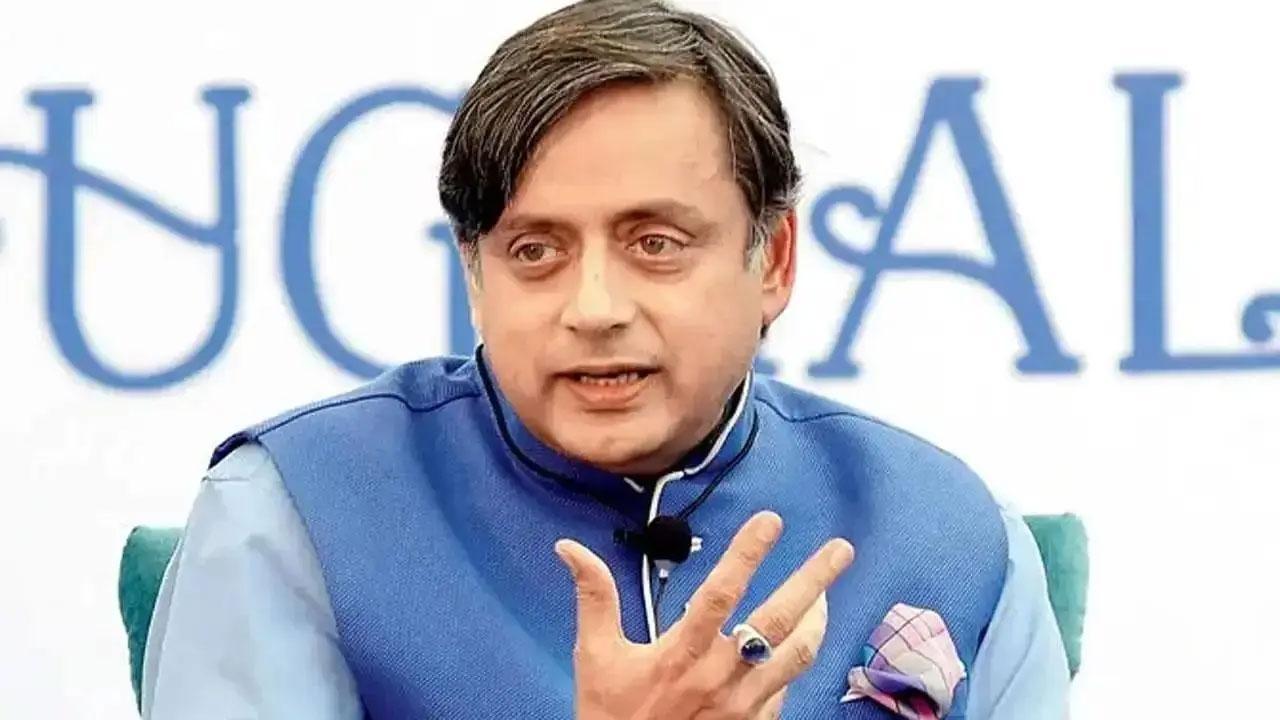Shashi Tharoor said the 'one nation, one election' initiative of the government would be against the existing system

Shashi Tharoor, File Photo/PTI
Congress leader Shashi Tharoor on Friday criticised the BJP-led Centre's proposal for 'one nation, one election', saying there is no practical way in which such a system can be implemented.
ADVERTISEMENT
Talking to reporters on his first visit to his Lok Sabha constituency after becoming a member of the Congress Working Committee, Tharoor said the 'one nation, one election' initiative of the government would be against the existing system, which is based on parliamentary democracy, where parties cannot continue in power if they lose the majority in the house.
"There is no practical way in which you can implement such a system. The second concern that many of us have is that the big diversity of India actually benefits from the staggered calendar that has evolved over the years," Tharoor said. Former president Ram Nath Kovind was on Friday tasked by the Centre with the responsibility of heading a committee to explore the feasibility of 'one nation, one election'.
The committee will explore how the country can go back to having simultaneous Lok Sabha and state assembly polls, as was the case till 1967. Tharoor said the Chief Executive of the country is selected by a parliamentary majority and a legislative majority, and the moment that majority goes, for whatever reason, the government falls.
Then a new election has to be held out of sync with the calendar. He said that between 1947 and 1967, India had all national and state elections on the same date, but the system collapsed when the coalition government fell in 1967 and the calendar slipped. Then the national government fell in 1970, and elections were held in 1971, he said.
"Therefore, that calendar also slipped 'There's been a number of changes, and that's why now there are different calendars for different states. The same thing will happen again in the future," Tharoor said. He said the opposition would attentively listen to Ramnath Kovind's committee on this. "Let us see if Mr Kovind's committee can come up with any practical solutions. We will listen attentively, but we have every reason to have a lot of scepticism about this entire initiative," Tharoor added.
About the impromptu Parliament session called by the central government, Tharoor said no one was informed about the agenda. In an aside, he said the central government may be thinking that it may not get a chance to function out of the new Parliament building, that's why it called for the session.
This story has been sourced from a third party syndicated feed, agencies. Mid-day accepts no responsibility or liability for its dependability, trustworthiness, reliability and data of the text. Mid-day management/mid-day.com reserves the sole right to alter, delete or remove (without notice) the content in its absolute discretion for any reason whatsoever
 Subscribe today by clicking the link and stay updated with the latest news!" Click here!
Subscribe today by clicking the link and stay updated with the latest news!" Click here!







